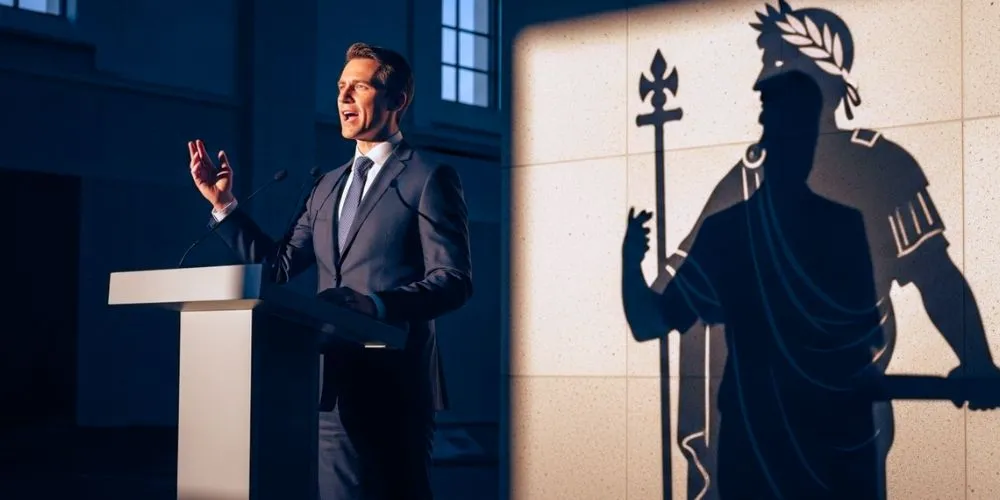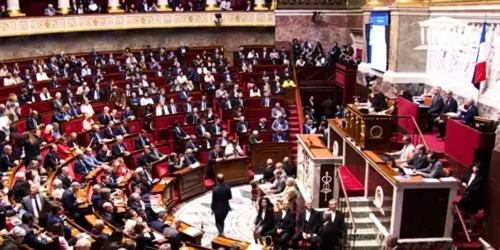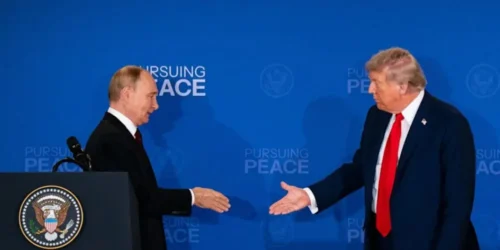History, as the saying goes, doesn’t repeat itself, but it often rhymes. In our breathless, 24-hour news cycle, there is a powerful temptation to view every crisis as unprecedented, every leader as unique, and every political movement as entirely new. This is a dangerous illusion. Political history is not a dusty collection of irrelevant facts and dates; it is a vast, vital library of human experience. It is the study of power, ambition, ideology, and folly. By understanding the choices, triumphs, and catastrophic failures of the past, we gain an indispensable compass for navigating the complexities of the present and the uncertainties of the future. This analysis will explore why political history remains profoundly relevant, how it illuminates our current struggles, and why ignoring its lessons leaves us adrift in a sea of political turmoil.
The Past as a Pattern Recognition Engine
Political history offers a rich dataset of case studies, enabling us to identify recurring patterns in human political behavior. This ability to recognize historical analogies—however imperfect—is a crucial tool for understanding our own time.
The Rise and Fall of Democracies
The current anxieties about democratic backsliding around the world feel alarmingly new, but history offers a wealth of cautionary tales. By studying the collapse of the Weimar Republic in Germany, the erosion of democratic norms in ancient Rome, or the rise of populist autocrats in 20th-century Latin America, we can identify familiar warning signs. These include the systematic delegitimization of the press, the politicization of the judiciary, the use of nationalist rhetoric to create an “us versus them” mentality, and the gradual normalization of political violence. History teaches us that democracy is not a destination; it is a fragile, contested process that requires constant vigilance.
The Perennial Lure of Populism
Populism, with its charismatic leaders who claim to speak for the “real people” against a corrupt and out-of-touch elite, is a recurring phenomenon in political history. From the Gracchi brothers in ancient Rome to modern leaders on both the left and the right, the playbook is remarkably consistent. It involves simplifying complex problems, identifying scapegoats (such as immigrants, minorities, or foreign powers), and making grand promises that are often impossible to keep. History shows us that while populism can be a legitimate response to real grievances, it can also be a pathway to authoritarianism when it dismantles the institutional checks and balances designed to constrain power.
History as the Source of Political Identity
Our understanding of the past is not just academic; it is the raw material from which we construct our national, political, and cultural identities. The stories we tell ourselves about our history shape our values and our politics in the present.
The Battle Over National Narratives
The writing and teaching of history are intensely political acts. The narratives a nation chooses to emphasize—stories of heroic triumphs, noble sacrifices, or past injustices—form the bedrock of its national identity. This is why debates over historical monuments, school curricula, and official apologies for past wrongs are so fierce. These are not just arguments about the past; they are battles over the nation’s meaning in the present. Is a nation defined by its highest ideals or by its worst failures? The answer to that question has profound implications for contemporary politics.
The Enduring Power of Historical Grievances
Many of the world’s most intractable conflicts are rooted in historical grievances that span generations or even centuries. The conflicts in the Balkans, the Middle East, and Kashmir, for example, cannot be understood without a deep knowledge of the history of empires, borders drawn by colonial powers, and past massacres that have never been fully reconciled. These historical animosities are passed down through generations, kept alive in stories and memorials, and can be easily inflamed by political leaders seeking to mobilize support. Ignoring this historical context makes it impossible to find a path to peace.
Learning from the Catastrophic Failures of the Past
While history can inspire us with stories of progress and heroism, its most important function may be to serve as a stark warning. By studying the greatest political catastrophes of the past, we can hope to prevent their recurrence.
The Lessons of Appeasement
The policy of appeasement toward Nazi Germany in the 1930s is one of the most studied and debated episodes in diplomatic history. The decision by British and French leaders to concede territory and allow Hitler to violate international treaties in the hope of avoiding war is now seen as a catastrophic miscalculation. This historical lesson has had a profound impact on Western foreign policy ever since, often being invoked to justify a more muscular and interventionist approach to dealing with aggressive dictators. It serves as a permanent reminder of the dangers of wishful thinking in the face of expansionist ambitions.
Understanding the Mechanisms of Tyranny
How do entire societies descend into totalitarianism and genocide? By studying the rise of regimes like Nazi Germany, Stalin’s Soviet Union, or Pol Pot’s Cambodia, we learn about the terrifyingly methodical processes involved. These include the creation of a powerful secret police, the establishment of a pervasive propaganda machine, the elimination of all independent sources of information, the use of terror to atomize the population, and the dehumanization of a targeted minority group. Understanding these mechanisms is our best defense against them, allowing us to recognize the early stages of a similar descent.
The Misuse and Abuse of Historical Analogy
While history is an invaluable guide, it can also be a dangerous weapon when misused. Political leaders often cherry-pick historical analogies to justify their actions, regardless of how poor the comparison may be.
The Danger of a “Munich” or “Vietnam” Complex
Political leaders and the public can become trapped by powerful historical analogies. For decades after the Vietnam War, every proposed American military intervention was met with fears of “another Vietnam,” a shorthand for a costly and unwinnable quagmire. Similarly, the “Munich” analogy is often invoked to shut down any debate about diplomacy or compromise with an adversary. The danger is that these powerful historical labels can prevent a nuanced analysis of the unique circumstances of the current crisis, forcing new problems into old boxes.
The Weaponization of History for Propaganda
Authoritarian regimes are masters at weaponizing history for propaganda purposes. They create highly distorted and selective historical narratives to legitimize their rule, stoke nationalist fervor, and justify aggressive foreign policies. Vladimir Putin’s distorted historical essays on Ukraine, for example, were used as a direct pretext for the 2022 invasion. In these cases, history is not used as a tool for understanding, but as a political weapon to mobilize, manipulate, and deceive.
Conclusion
To be ignorant of political history is to be a child in the political arena, perpetually surprised by the turn of events and easily swayed by the simplistic slogans of the moment. History is our collective memory, our source of identity, and our most important early warning system. It provides the context, the patterns, and the cautionary tales that are essential for sound political judgment. In an age of information overload and political polarization, the deep, patient, and nuanced understanding offered by the study of the past is not a luxury; it is a prerequisite for responsible citizenship and wise leadership. The echoes of the past are all around us; we need only learn how to listen.













